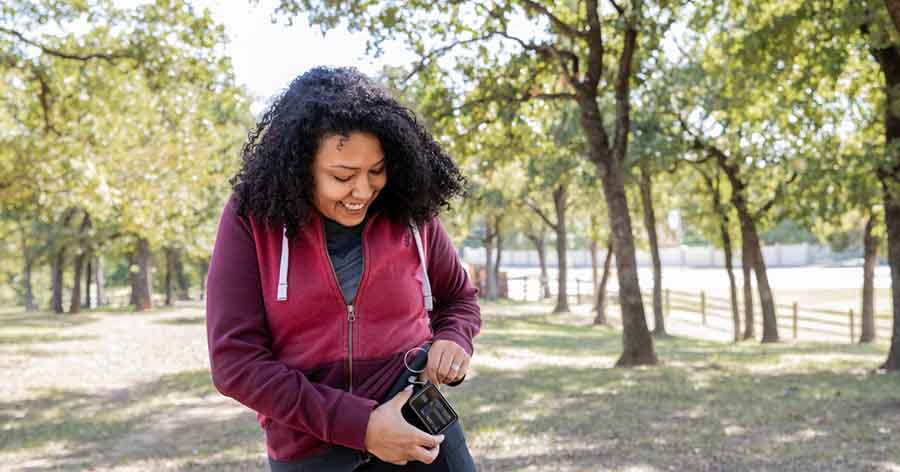Positive Online Weight Reduction project
There is little research into how computers and the internet can assist nurses when treating people who need to lose weight. However, the Positive Online Weight Reduction (POWeR) project, being carried out by the University of Southampton, is assessing what support the internet can provide.
POWeR leader Professor Paul Little said: “Obesity is one of the major public health threats of our time. The internet could potentially provide an ideal way to give patients interactive advice based on their personal situation and progress, with the support of a nurse to oversee, encourage and advise patients as necessary. At present nurses do not have the time to provide the intensive support needed to address the problem, and this could be a cost-effective way of filling this gap in provision.”
The project has already designed and piloted an obesity management website that addresses the most common motivational beliefs, allowing people to select information relevant to their own concerns. Preliminary results show that the internet gives valuable support.
The new study will recruit 660 patients with a BMI of more than 30kg/m2. One group will receive intensive nursing support and access to the website. Another group will work through the website, but will have minimal contact with nurses. The remainder will have “usual care”, consisting of brief advice from a practice nurse and follow-up appointments for weighing. The success of the research will be judged by the extent to which weight loss can be achieved and maintained and by the cost effectiveness of each approach.
Lifestyle advice failing to reach patients
Clinicians think they are giving much more healthy living advice to people with diabetes than patients think they are getting, according to a new study of UK general practices by Newcastle University which was funded by Diabetes UK. Almost all GPs and nurses surveyed (99.6%) routinely talk about physical activity with overweight people with diabetes, while 88% advise them about their diet. Yet less than half of overweight people (45%) said a healthcare professional had talked to them about physical activity during the previous year, while for dietary advice the figure was 57%.
Simon O’Neill, Director of Care, Policy and Intelligence at Diabetes UK, said: “It is a concern that doctors think they are giving people with diabetes who are overweight significantly more lifestyle advice than the patients themselves say they are getting. We hope this research highlights the importance of doctors making sure their advice to people with diabetes is crystal clear and jargon free.”
Lead researcher Dr Gillian Hawthorne said: “We are very surprised by just how much difference there was in patient and clinician feedback. We need to look into how the right messages get across clearly.”
NHS Diabetes calls for better transitional care
NHS Diabetes is calling for the discrepancies between children and adult type 1 diabetes services to be addressed, following the release of a new report, Join Us on Our Journey, which outlines areas of improvement and future recommendations for the care of children and young people with type 1 diabetes. The national diabetes service improvement team is also recommending standardised and formal diabetes training for every professional working with children and young people with diabetes. Clinics, schools, colleges and psychological support were highlighted as areas which needed additional diabetes support.
Anna Morton, Director of NHS Diabetes said: “All too often we are finding discrepancies between services, particularly in transitional care. Equity of service is the key issue. We are working with the National Paediatric Diabetes Network to ensure that healthcare professionals are supported in improving local services. All children and young people should receive high-quality, cohesive care throughout their diabetes journey.”
The full report can be found at: http://bit.ly/AbrEdx.





Developments that will impact your practice.
5 Mar 2025